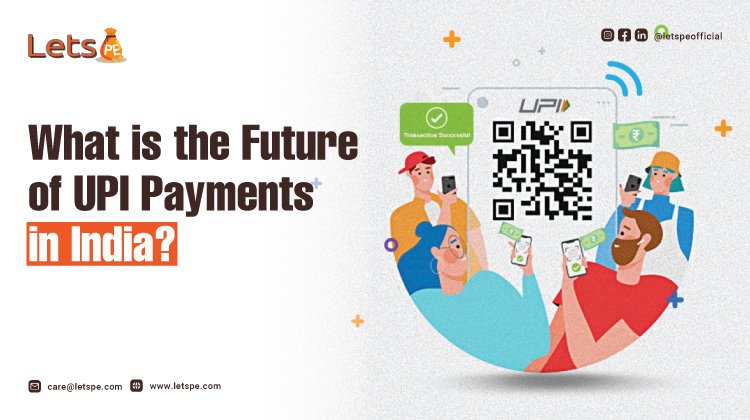What's the Future of UPI Payments in India?

Once again, India has noticed fabulous elaboration in its payment outlook with the development of Unified Payments Interface (UPI). UPI, a real-time payment system developed by the Public Payments Corporation of India (NPCI), has reorganized the way people in India manage fiscal deals. As we're gradually moving into the digital age, it's relatively necessary to explore the promising future of UPI payments in India. At the moment, through this blog, we will learn more about UPI and its future in some detail.
Constant Growth
UPI has grown at a surprising pace since its establishment in 2016. In just a few years, it has become the most favored mode of payment for millions of Indians. Its impenetrability, convenience, and affiliates across banks and payment platforms have significantly contributed to its fastest acceptance. The future is likely to see further growth as UPI continues to expand its reach to pastoral areas, guaranteeing fiscal inclusion for all.
Financial Addition

One of the most remarkable advantages of UPI is its capability to bridge the gap between urban and rural populations. As UPI-based services become easier to understand, people in remote areas will have easy access to banking services. This will authorize them to share in the digital frugality, admit government advantages directly into their bank accounts, and access credit and insurance services that are unapproachable to them.
Merchant Relinquishment
UPI has formerly earned reasonable traction among merchandisers, enabling them to accept digital payments with veritably many structure conditions. The future of digital payment will indeed see more businesses, from original kirana stores to big retailers, borrow UPI to simplify deals, minimize cash running, and give a more suitable shopping experience for guests.
Innovation and Technology
Innovation in UPI- grounded services is set to shape the future of payments in India. Fintech startups launching new and innovative products and services erected on top of the UPI platform and established financial institutions are anticipated to see significant growth. These could include everything from digital lending to wealth operation results, making UPI the strong backbone of India's financial ecosystem.
International Expansion
UPI's success story has captured transnational attention, with several countries showing interest in espousing an analogous model. This could conceivably lead to cross-border UPI deals, making it much easier for Indians to shoot and admit plutocrats internationally. Similar progressions will further solidify UPI's position as a global leader in digital payments.
Enhanced Security Measures
With the rapid-fire growth of digital payments, enterprise security has become important. The future of UPI payments will witness efforts to increase preventive measures and protect consumers from fraud and cyber pitfalls. Biometric authentication, tokenization, and ultramodern advanced encryption methods will play an important role in guaranteeing the safety of deals.
Government Enterprise
The Indian government is promoting digital payments at a rapid-fire pace to promote cashless frugality. Enterprises like Digital India Campaign and Jan Dhan Yojana have significantly contributed to the wide relinquishment of UPI. In the coming future, we can anticipate government-led impulses and programs to promote the growth of digital payments.
Conclusion
The future of UPI payments in India is really quite promising. It'll continue to grow, empower the depressed, and encourage invention in the fiscal sector. As UPI expands its compass and evolves with technological advancements, it'll indeed play a more important role in reshaping India's digital frugality. With its convenience, security, and availability, UPI is on its way to becoming the strong backbone of India's financial structure, promising a brighter, more inclusive, and digitally connected future for all.












